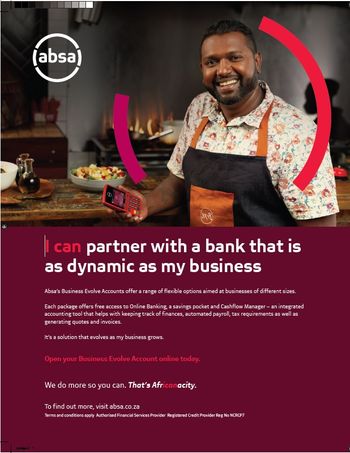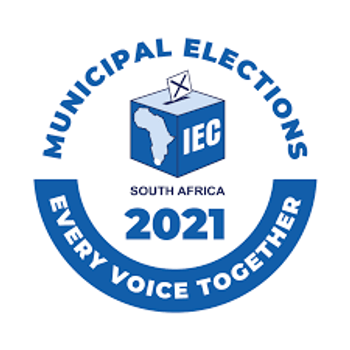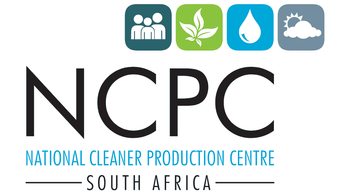An account that’s as dynamic as my growing business
Whether you own a start-up or a larger commercial business, we have a banking solution designed with your needs in mind.
Make the right decision for your business with an Absa Business Evolve Account, and start taking the hassle out of your hustle.
Any entrepreneur will tell you that running a successful business is no walk in the park, but finding the right bank to partner with shouldn’t be as much of a hurdle. That’s why we are here to assist you with our range of account types, combined with flexible solutions tailored to your business needs.
Our Business Evolve Transactional Account is suitable for all business segments and sectors, plus it comes with an array of packages and added benefits.
One of the packages includes a low-cost transactional account, which offers more than just zero monthly fees.
At its heart is a business management and accounting solution called Cashflow Manager. As an end-to-end digital offering, the Cashflow Manager empowers even novices to take control of their business finances like never before.
Standard features include the ability to create cost estimates and generate invoices, which will automatically be picked up when they are paid, and to deliver reports on outstanding funds.
The Cashflow Manager gives you a bird’s eye view of your company’s finances, and even help proprietors to keep their own money and their business’s money apart. It also offers payroll services, further reducing an SME’s reliance on external resources. Real-time analytics and reporting can be accessed with a few clicks via Absa Online. It comes free when you have the Business Evolve Account.
Some of the other packages include Evolve PAYT, which comes at a low monthly account fee, with tiered per-transaction pricing for electronic payments, debit card swipes and external debit orders. The Business Evolve 35 is a bundled package for businesses that have lower transaction volumes and it offers fixed-fee banking to support cash flow and budgeting needs, whereas the Business Evolve 60 package is more suited to medium-sized businesses with higher transaction volumes.
Lastly, the Business Evolve 90 package is tailored for businesses with larger transaction volumes.
At Absa, building carefully tailored banking solutions for entrepreneurs is at the heart of what we do, and laying the groundwork for businesses to have one account that evolves with their growth is how we do more. Open your Business Evolve Account online today.
We do more so you can. That’s Africanacity.
Untitled-




